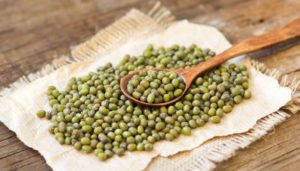Sprouting off

Sprouting is easy, cheap and increases the nutritional properties of seeds, nuts, pulses and grains.
Sprouting seeds, nuts, pulses and grains is a great thing to do to increase their nutritional value and digestibility. During the sprouting process complex carbohydrates are converted into simple sugars and bio-available nutrients to feed the plant. Sprouts are also considered to be biogenic foods – that means foods ‘bursting with life force’ – any food picked and eaten straight away is considered thus, so unless you have your own garden – another great motivation to do so – your supply of biogenic foods is fairly limited as after several hours most foods go into a slow cycle of decay.
To make your own sprouts use the best quality and freshest seeds you can find. The Co-op turns over its stock quite quickly so you’ll find their products really fresh.
You can use any of the following – almonds, brazil, broccoli, mung beans, adzuki beans, whole lentils, sunflower seeds, sesame seeds, chickpeas, borlotti beans, quinoa, buckwheat – you can pretty much sprout anything that’s a seed but these are ones that are relatively easy and work in a jar format.
- Place seeds, nuts,grains or pulses in a glass jar and top with water, be aware that whatever you use will increase in size by around 1.5 times as it absorbs the water, so cover with enough that they stay submerged.
- Soak your seeds for 8 hours or overnight.
- After this time rinse well, in cold weather its helpful to use warm water for this, but not too hot as you might kill your seeds.
- Then leave to drain and cover with a tea towel – you want your seed to think its underground – plus the tea towel keeps the seeds warmer.
- Rinse regularly, at least 2 times a day – morning and evening is good – in hot weather you may need to rinse more often to prevent the seed drying out.
- Once you see little tails appear on your seed you know it’s sprouted.
- Place in the fridge to slow down the growing process and eat within a week.
Tips by Danielle O’Donoghue


